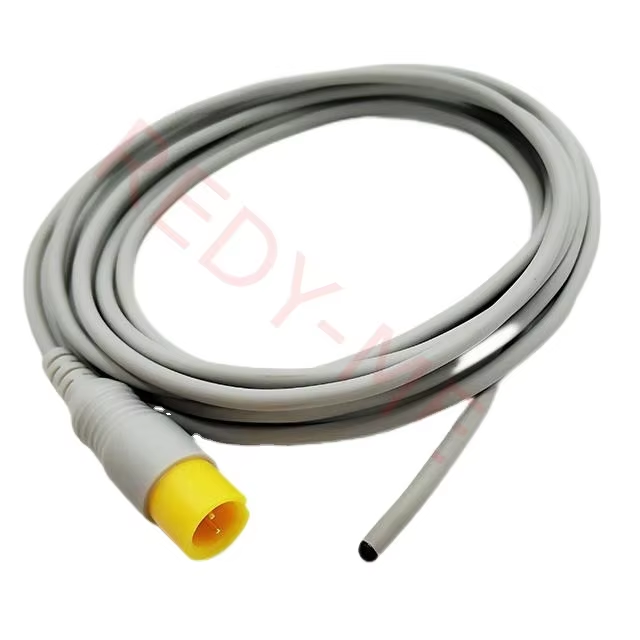In the rapidly evolving landscape of healthcare technology, medical accessories play a crucial role in enhancing patient care and improving diagnostic accuracy. Among these accessories, temperature probes have seen significant innovations that not only optimize their performance but also expand their applications in clinical settings. This article delves into the future of medical accessories with a focus on temperature probes, exploring their advancements, applications, and the impact they have on patient monitoring and care.
Temperature probes are essential tools used in various medical environments, from hospitals to outpatient clinics. The evolution of these devices has been driven by the need for more accurate, efficient, and user-friendly solutions. Traditional thermometers have largely been replaced by digital temperature probes, which offer quicker readings and improved accuracy. However, the future of these devices looks even brighter with the integration of cutting-edge technologies such as wireless connectivity and smart sensors.
One of the most significant innovations in temperature probes is the incorporation of wireless technology. Wireless temperature probes enable healthcare professionals to monitor patients remotely, which is particularly beneficial in critical care settings. This innovation not only streamlines the monitoring process but also reduces the risk of cross-contamination, a crucial factor in infection control. Moreover, these devices can be connected to electronic health records (EHR) systems, allowing for real-time data sharing and analysis, ultimately leading to more informed clinical decisions.
In addition to wireless technology, the development of smart temperature probes has revolutionized patient monitoring. These advanced devices often come equipped with artificial intelligence (AI) capabilities, enabling them to learn from historical data and provide predictive analytics. For instance, smart probes can alert healthcare providers to potential fevers or other health issues before they become critical, allowing for timely intervention. This proactive approach not only enhances patient outcomes but also optimizes resource allocation in healthcare facilities.
Furthermore, the design of temperature probes is also evolving to enhance user experience and patient comfort. Innovations such as flexible and non-invasive probes cater to the diverse needs of patients, including infants and those with sensitive skin. The emphasis on patient-centered design ensures that temperature monitoring is not only accurate but also comfortable, reducing anxiety and improving the overall patient experience.
As we look to the future, the integration of temperature probes with other medical technologies is set to transform patient care. For example, the combination of temperature probes with wearable health devices can provide comprehensive health monitoring solutions. This convergence of technologies allows for continuous monitoring of vital signs, empowering patients to take an active role in their health management. The potential for data analytics and machine learning in this space is vast, promising to unlock new insights into patient health trends and outcomes.
In conclusion, the future of medical accessories, particularly temperature probes, is marked by innovation and technological advancement. As healthcare continues to evolve, these devices will play an increasingly vital role in patient monitoring and care. The integration of wireless technology, smart sensors, and user-centered design will not only enhance the accuracy and efficiency of temperature measurement but also improve the overall patient experience. Keeping an eye on these trends will be essential for healthcare providers looking to stay ahead in a competitive landscape.
Industry trends indicate a growing demand for advanced temperature probes, driven by the increasing focus on telemedicine and remote patient monitoring. As healthcare systems adapt to these changes, the innovations in temperature probes will undoubtedly shape the future of medical accessories, ensuring better patient outcomes and more efficient healthcare delivery.

